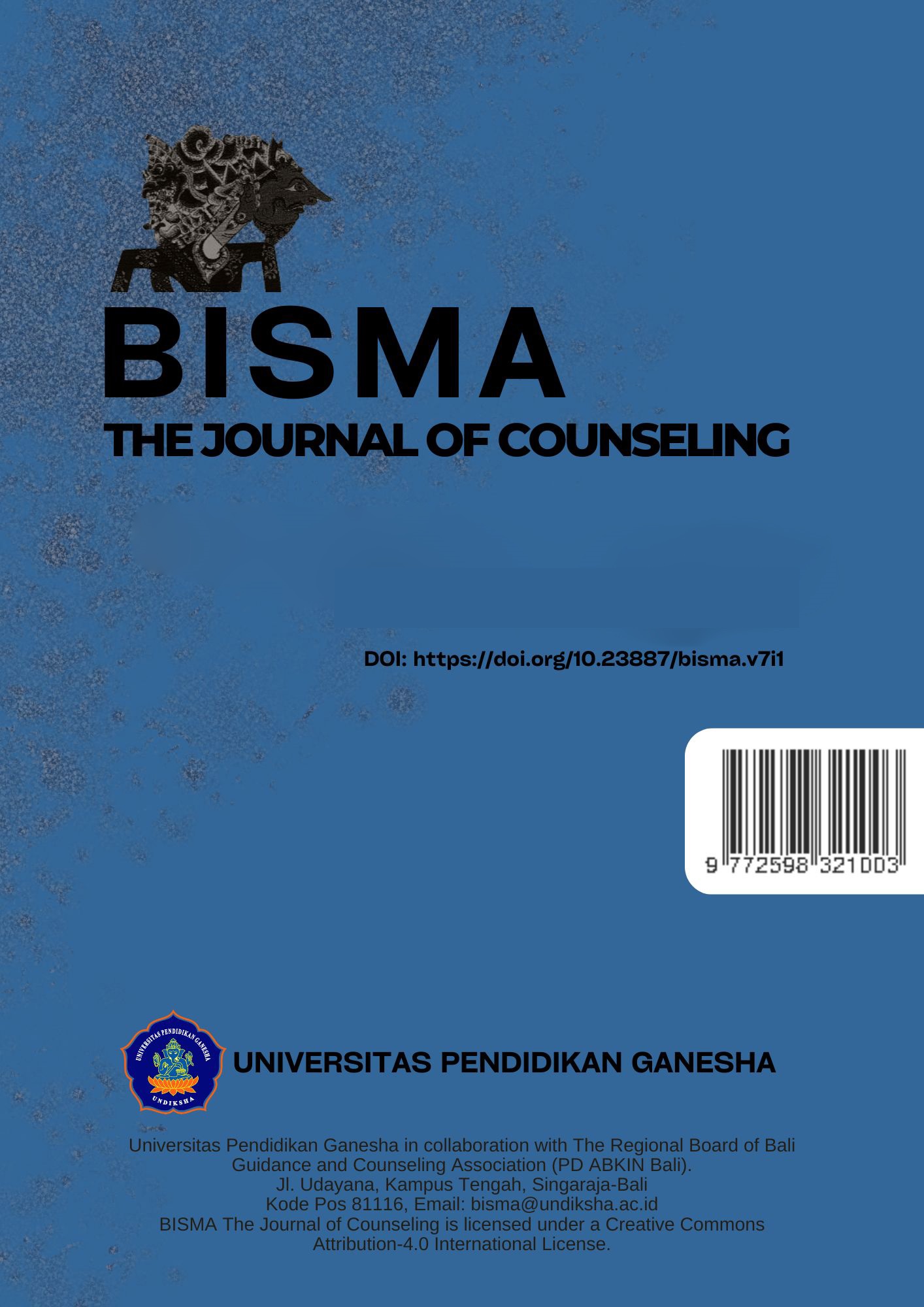Improving Assertiveness in Preventing Sexual Harassment with Sumbang Duo Baleh Content Mastery in Elementary Education
DOI:
https://doi.org/10.23887/bisma.v8i3.86734Keywords:
Sexual Harassment, Assertive Behavior, Content Mastery ServicesAbstract
Sexual harassment among elementary school students is an issue that requires special attention, particularly in terms of raising awareness and assertive behavior to prevent such incidents. This study aims to analyze the improvement of assertive behavior in preventing sexual harassment among elementary school students using the mastery of content service sumbang duo baleh. The research method used is quantitative with an experimental approach. The design applied in this study is a quasi-experimental design. The sample consists of 30 students selected through purposive sampling, divided into 15 students in the experimental group and 15 in the control group, with low learning discipline. The data analysis techniques used include the Wilcoxon Signed Rank Test and Kolmogorov-Smirnov 2 Independent Samples. The results indicate that the mastery of "sumbang duo baleh" content service is effective in improving students' assertive behavior in preventing sexual harassment. This is evidenced by a significant improvement in the experimental group compared to the control group. The conclusion of this study is that the sumbang duo baleh content mastery service can be implemented to improve students' assertive behavior in preventing sexual harassment, thus becoming an effective solution in elementary school education.
Published
Issue
Section
License
Copyright (c) 2024 Idyana Adha, Yarmis Syukur

This work is licensed under a Creative Commons Attribution 4.0 International License.








